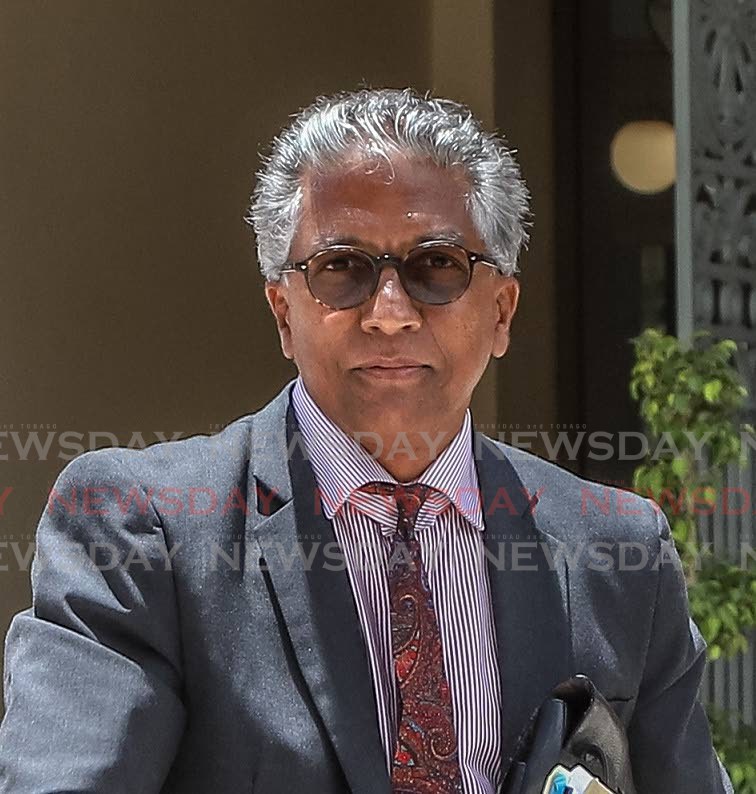New law allows second trial against acquitted suspects

The Opposition again left the Parliament when Attorney General (AG) Reginald Armour rose to present a matter, this time to begin the debate on the Miscellaneous Provisions (Criminal Proceedings) Act, 2021. The bill was first introduced on December 10, 2021 by then AG Faris Al-Rawi.
Armour said the bill sought to amend three pieces of legislation, namely the Interpretation Act, Chap. 3:01, the Supreme Court of Judicature Act, Chap. 4:01, the Criminal Procedure Act, Chap. 12:02 and for other related matters, in relation to the relaxation of the rule against double jeopardy and the Offences Against the Person Act, Chap. 11:08 with respect to the abolition of the one-year-and-a-day rule.
Armour said, in 2021, the Law Review Commission prepared two papers on the review of the double-jeopardy rule and the review of the year-and-a-day rule. He said extensive research was carried out on the jurisprudence of those rules and then stakeholder consultations were held with the judiciary, the Director of Public Prosecutions (DPP), the police, the public defenders’ department, and the Law Association. He said the judiciary and the police were in support of the amendments.
He said the double-jeopardy rule, which has been part of common law since the 12th century, is based on the principle that a person should not be punished for the same offense on more than one occasion, and is established from the autrefois acquit and autrefois convict doctrines.
He said the proposed changes to TT's laws were based on the Connelly doctrine, which came out of the case of Connelly vs the DPP reported in 1964, where the House of Lords said a person could not be tried for the same offense or substantially the same offense unless the prosecution was able to prove the existence of special circumstances warranting a second prosecution.
Armour said the previous rule existed because it finalises proceedings against someone accused of a crime, but strict application has led to guilty people going free and remaining so even after new DNA and forensic evidence were found and brought forward.
“The Interpretation Act would be amended by stating that an acquittal upon a prosecution for an offence listed in Schedule 1 of the Supreme Court of Judicature Act is not a bar to prosecution for the same offence where: there is new and compelling evidence; or the acquittal was a tainted acquittal, and it is in the interest of justice that there be a retrial.”
He said under Clause 4 of the new bill, if the police commissioner wants to retry someone for the same offense, he would apply in writing to the DPP before commencing any investigation. The DPP can give consent to an investigation if he is satisfied that there will be new and compelling evidence to warrant the conduct of the investigation. An investigation can be authorised by an officer not below the rank of senior superintendent if the matter is urgent, but the matter has to be reported to the DPP and written consent obtained as soon as possible.
Armour said the person being retried is entitled to be present in court and be heard on the subject of the application if they so desire. He said there shall be no publicity regarding the retrial unless authorised by the court of appeal.
The AG said the year-and-a-day law would be abolished for offenses involving death, but this would not be retroactive.
“The year-and-a-day rule means the rule that, for an offence involving death, an act or omission is conclusively presumed not to have caused the death of a person if more than a year and a day have elapsed before the person died.”
Armour said with advances in medical technology, people could survive for more than a year and a day and then die, following an attempt at murder.
Chaguanas West MP Dinesh Rambally, in responding to Armour, said the bill sought to repeal a common-law principle that had been around for centuries. He said the bill was premised on scientific advancements which were not present in TT.
“The wheels of justice turn quickly in other countries where the double-jeopardy rule has been relaxed. They have access to DNA testing, forensic evidence testing, electronic monitoring that we do not have in this country. We need to keep our age-old justice principles as we don’t have a smooth, swiftly flowing justice system.”
Rambally said the double-jeopardy rule represents an individual’s defence against a government and relentless police service and gives a person a right to a fair trial. He said the bill presented opportunities for the prosecution to withhold evidence or ignore an initial trial as they would be able to bring it up in another trial.
The bill was passed without ammendment in the House on Tuesday.


Comments
"New law allows second trial against acquitted suspects"